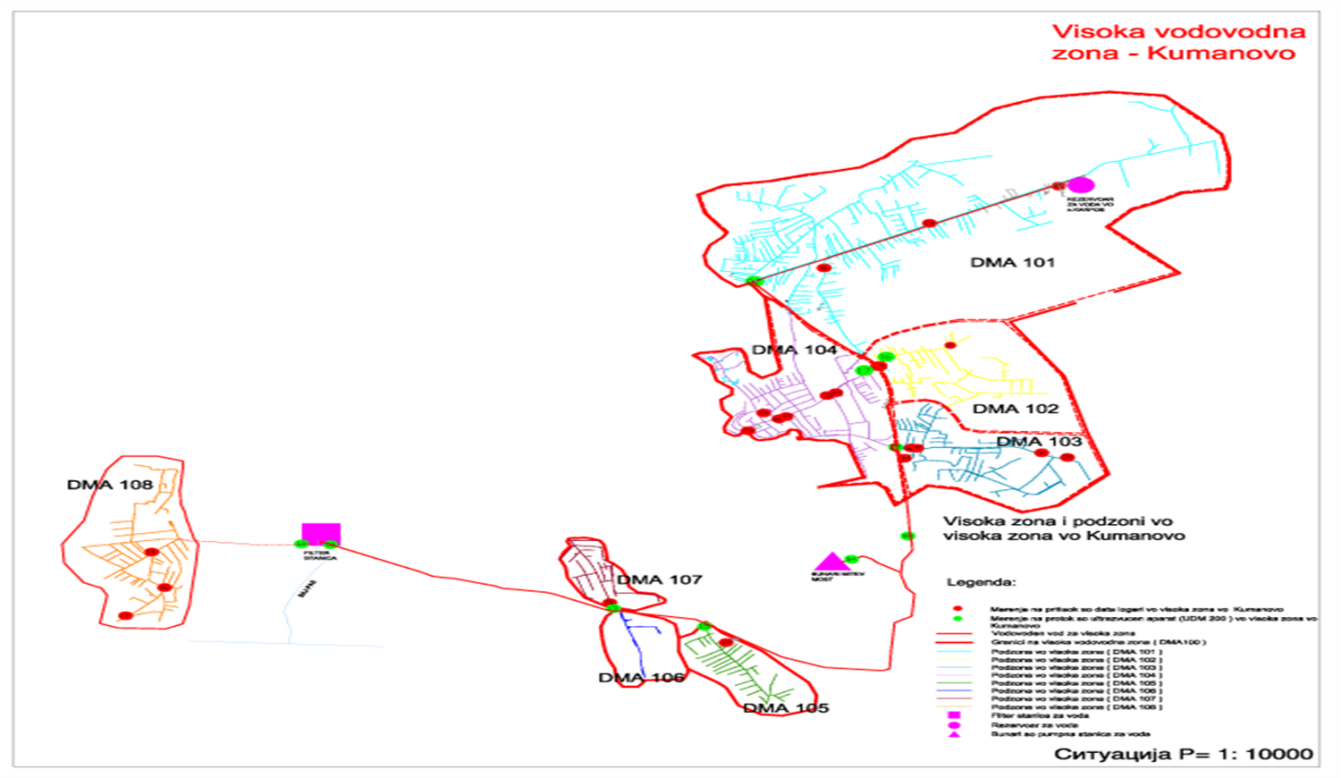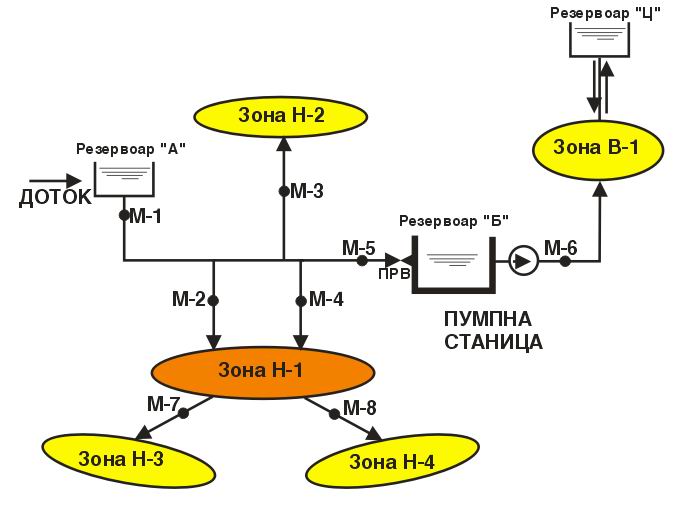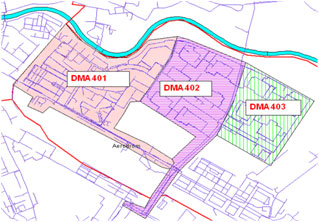Design and Evaluation of District Meter Areas (DMA)
Many water utilities operate their pipe networks as an open system where water to some areas is fed from inter-connected pipe network. Generally NRW management in an open system is undertaken in a passive manner where NRW reduction activities are initiated only when the loss becomes visible or is reported.
Active NRW Management is only possible using zones, where the system as a whole is divided into a series of smaller sub-systems for which NRW can be calculated individually. These smaller sub-systems, often referred to as District Meter Areas (DMAs) should be hydraulically isolated in order to calculate the volume of water lost within the DMA
Subdividing large water distribution networks into a limited number of DMAs has the advantage to identify the zones of the distribution system with the highest levels of losses and furthermore new, hidden leaks can be located much earlier (reduced awareness time) and much more precisely (reduced location time). Water utilities can immediately determine levels of leakage and identifying which section of main that has leakage and sudden exceptionally high flows into an area if inflows and outflows of a DMA are monitored on a regular basis. As a result, the awareness, location and repair times for new leaks are significantly reduced.
District metering involves the permanent monitoring of minimum night flows into permanently isolated DMA’s. Night flows are monitored by using a system of permanently installed and monitored district flow meters.
Permanently monitored DMA’s are by far the most effective way of reducing the duration of unreported leakage. The continuous monitoring of nightlines facilitates the rapid identification of unreported leaks, and provides the data required to make the most cost-effective use of leak pinpointing and repair resources.
We, at Aquasave can organize your system into DMA’s in order to control the water losses and to suggest best solutions to monitor the flow and transfer the data to your office.
To learn more about DMA’s and to evaluate your systems potential benefits from DMA implementation, please contact Aquasave.






